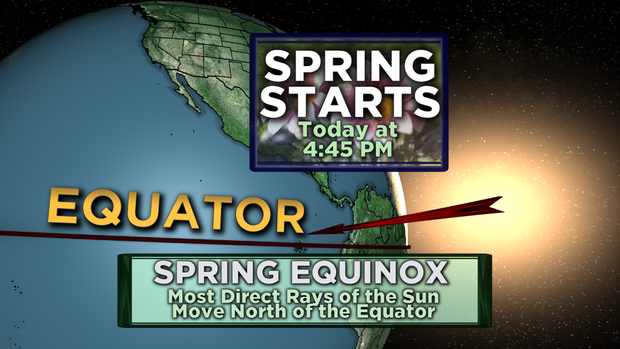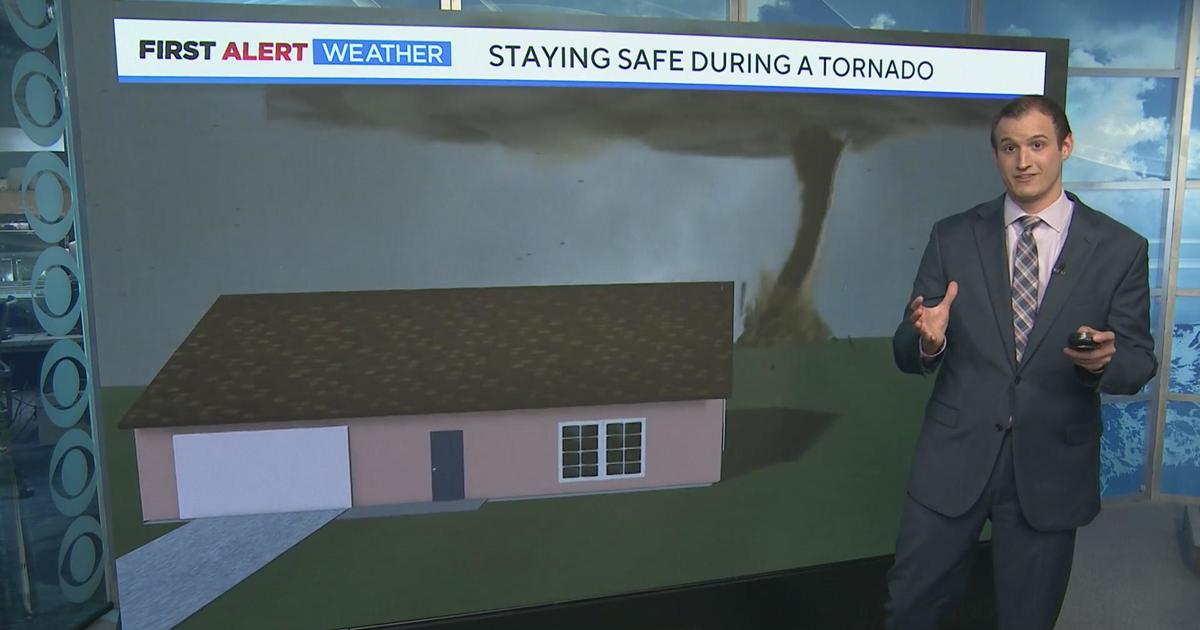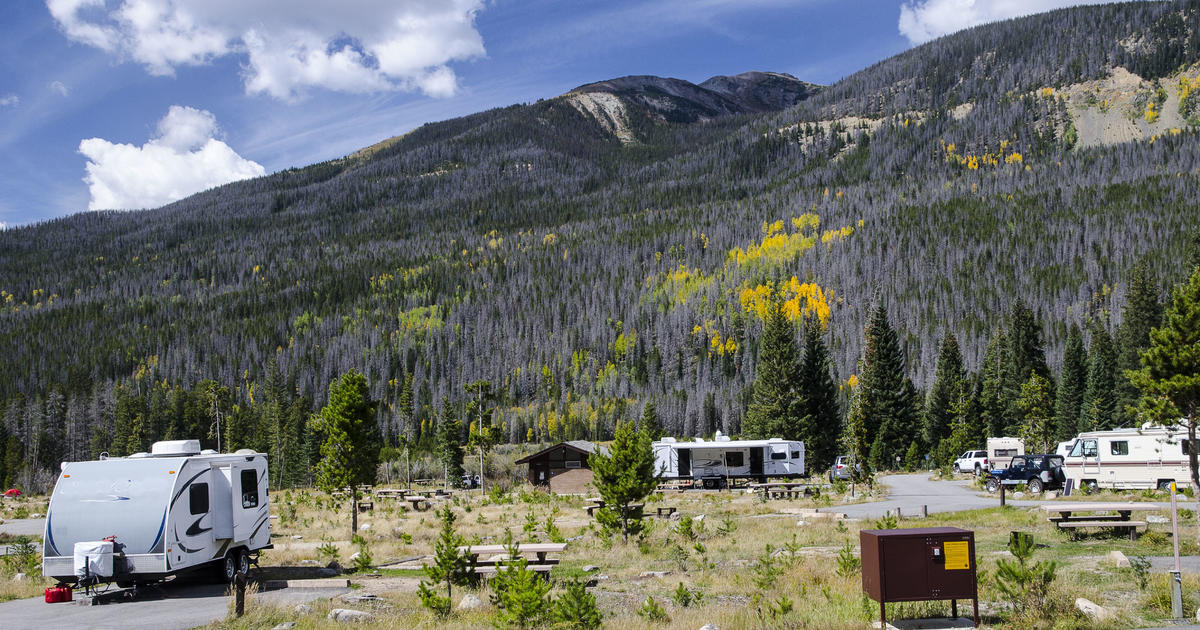Spring Arrives With A Wet Outlook For Colorado
DENVER (CBS4) - Spring officially arrives across Colorado at 4:45 p.m. MDT on Friday, Mar. 20.
The first day of spring, known as the vernal equinox, means equal day and equal night, where the entire planet will have roughly 12 hours of each.
On the first day of spring the sun is directly overhead during the noon hour at the equator.
Now through the first day of summer, the direct rays of the sun will move north with each passing day.
They'll eventually be directly overhead at the Tropic of Cancer, or 23.5° N, at 12 p.m. on the summer solstice.
As the northern hemisphere begins to heat up and come alive during spring, the southern hemisphere will start to cool down and go dormant during their fall.
The latest 90-day weather outlook from NOAA's Climate Prediction Center is calling for wetter-than-normal conditions across Colorado.
Spring 2015 will feature a weak cycle of El Niño which could be one of the reasons why the outlook is on the wet side.
The overall storm track across North America tends to take a southern trek during El Niño.
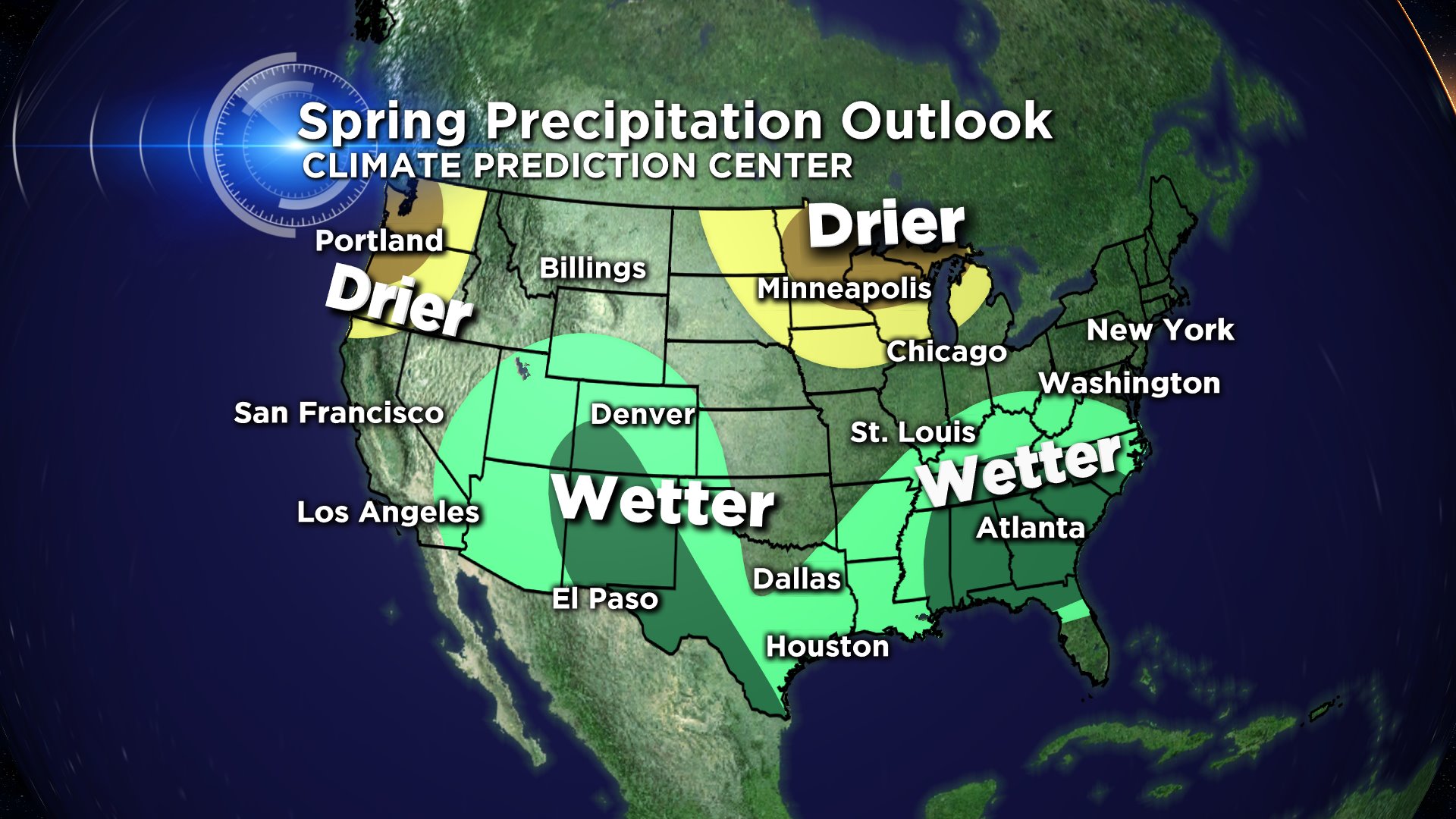 (credit: CBS and NOAA)
(credit: CBS and NOAA)
Temperatures throughout the spring season are forecast to be near normal for most of Colorado.
But we could see slightly warmer conditions in the northwest and slightly cooler conditions on the far southeast plains.
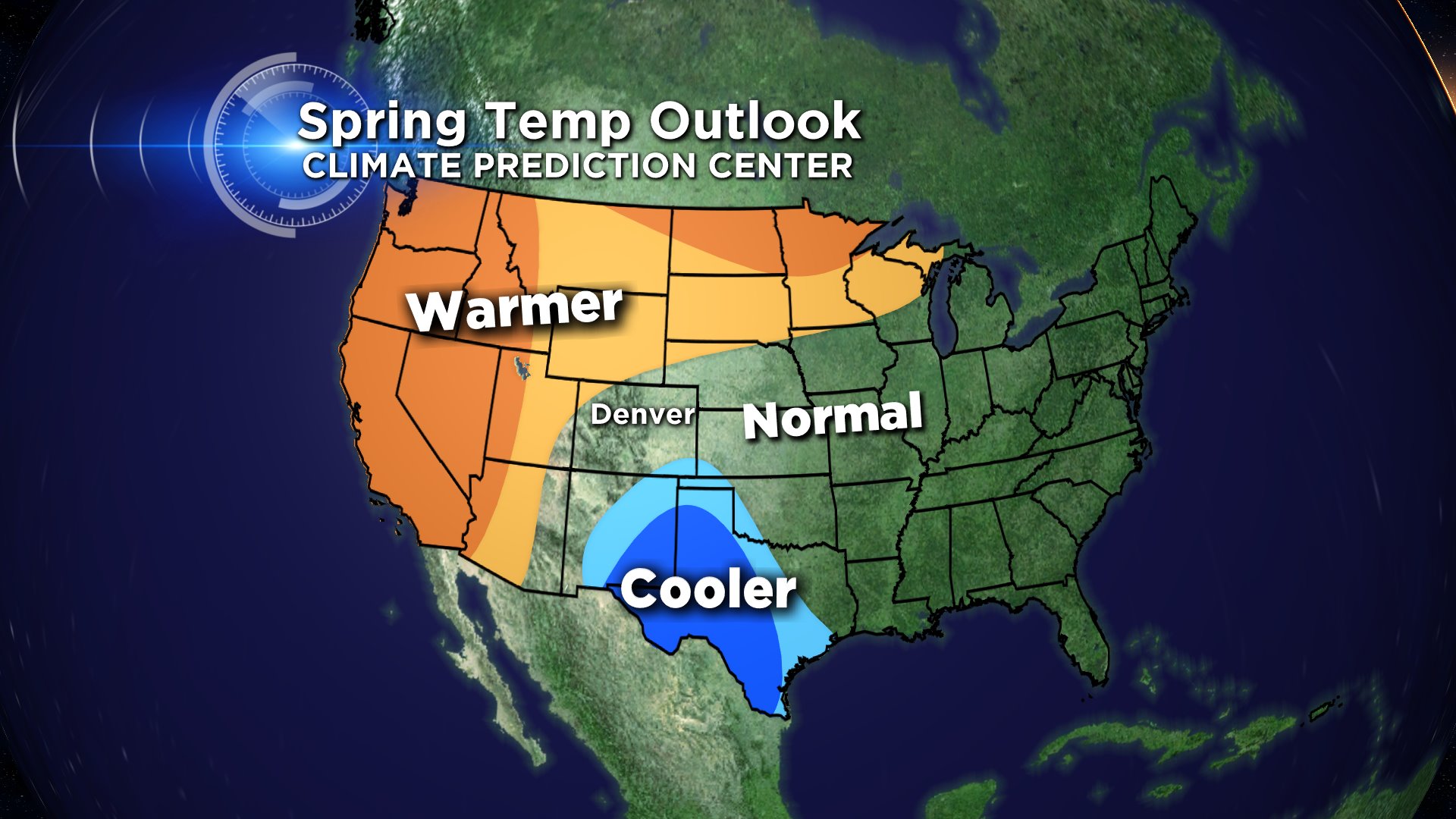 (credit: CBS and NOAA)
(credit: CBS and NOAA)
90-day outlooks are fantastic for overall planning but they must be used with a bit of caution.
When it comes to temperatures, if over the next 90 days we have 10 days with extreme cold and 10 days with extreme heat, when averaged, those extremes will cancel each other out.
The result would be a final outcome that might look normal, but in reality, it had two different stretches of extreme weather in between.
For precipitation, just because a 90-day outlook calls for wet conditions doesn't mean it will be wet the entire time.
While it is possible that we could see storm after storm keep us wet overall, we could also see lengthy dry stretches with a few unusually wet storms in between.
Both scenarios could produce a 90-day period that results in above average precipitation.
Meteorologist Chris Spears writes about stories related to weather and climate in Colorado. Check out his bio or follow him on Twitter @ChrisCBS4.
